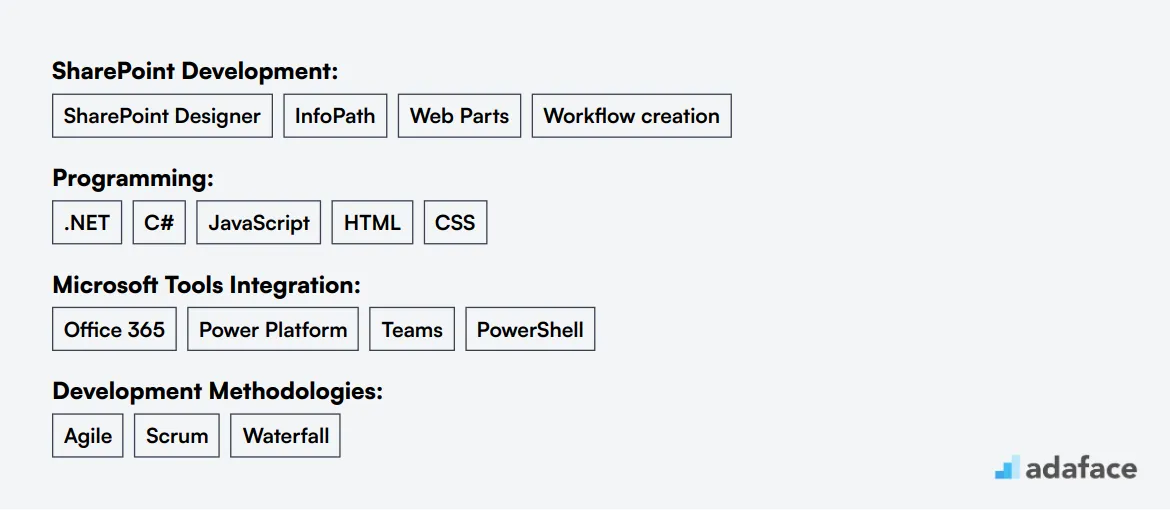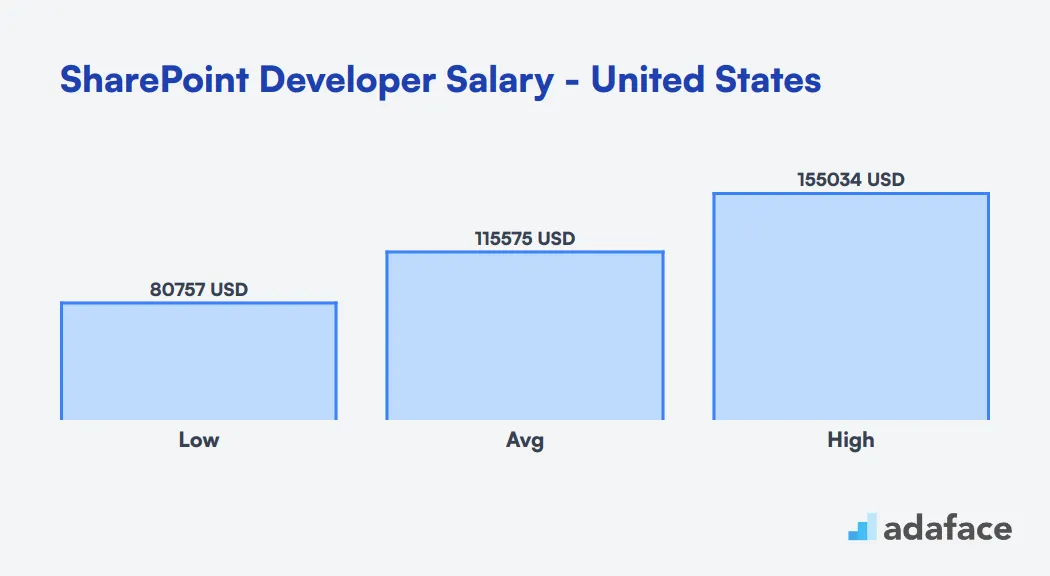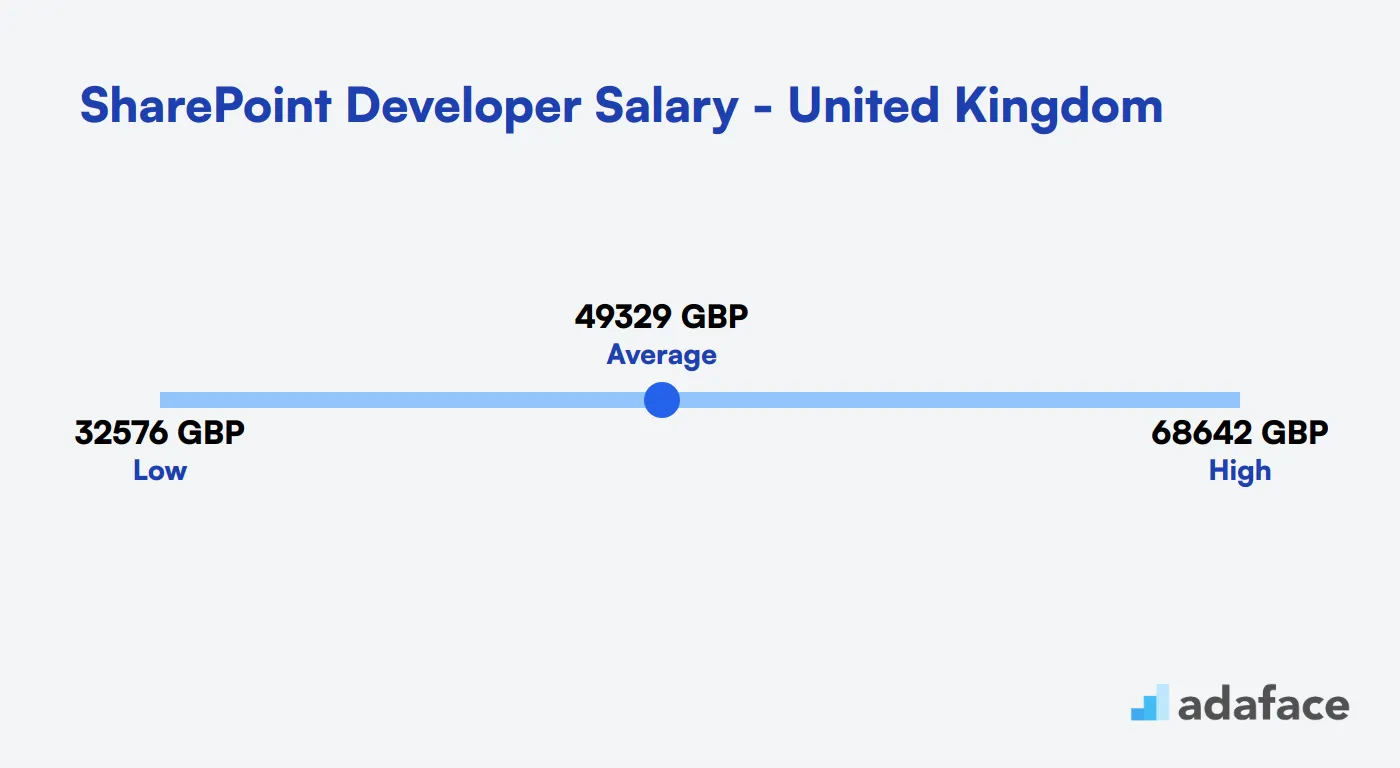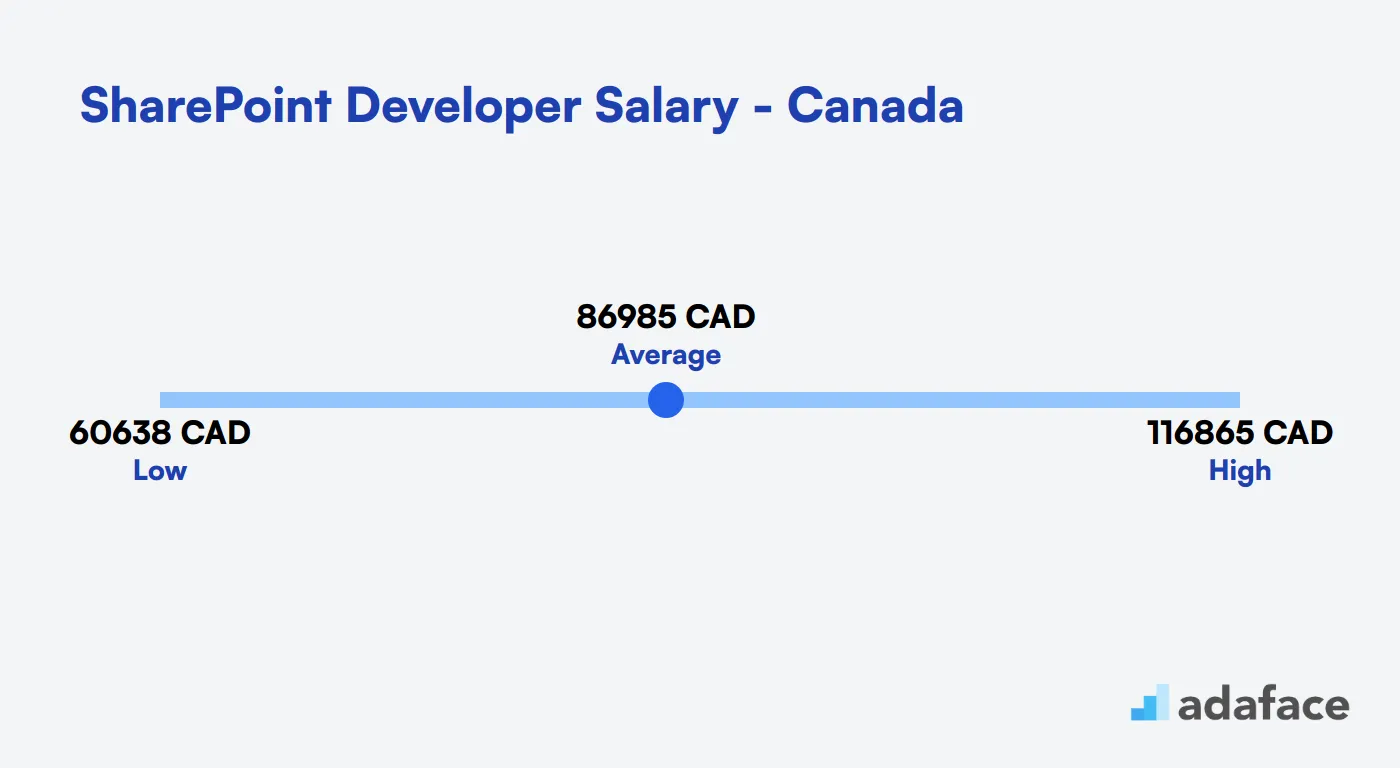As a hiring manager or recruiter, you're tasked with the challenge of finding a SharePoint Developer who not only possesses the necessary technical skills but also fits seamlessly into your company culture. Many companies fall short by focusing solely on technical expertise without considering soft skills, such as problem-solving and communication, which are crucial for effective teamwork and project success. Understanding the nuances of this role can save your company time and resources by ensuring you hire the right person the first time.
In this article, we will guide you through the entire hiring process for a SharePoint Developer. From crafting a compelling job description to structuring technical interviews, we've got you covered. We'll also explore various platforms for finding candidates and offer insights into essential skill assessments. For more on the skills a SharePoint Developer should have, check our detailed guide on SharePoint Developer Skills.
Table of contents
Key Skills and Qualifications for Hiring a SharePoint Developer
Creating an ideal candidate profile for a SharePoint Developer can be tricky. It's common to overlook specific requirements or confuse what's necessary with what's merely a preference. Understanding the unique needs of your organization can help you differentiate the essential skills from those that would simply be nice to have.
When hiring a SharePoint Developer, look for a blend of required and preferred skills. The required skills typically include a Bachelor’s degree in Computer Science or a related field, at least 3 years of SharePoint development experience, and proficiency in SharePoint tools such as SharePoint Designer and InfoPath. Preferred skills may include familiarity with SharePoint Online and certifications like the Microsoft Certified: SharePoint Developer.
| Required skills and qualifications | Preferred skills and qualifications |
|---|---|
| Bachelor’s degree in Computer Science, Information Technology, or related field | Experience with SharePoint Online and Office 365 |
| At least 3 years of experience in SharePoint development | Familiarity with PowerShell scripting |
| Proficiency in SharePoint Designer, InfoPath, Web Parts, and workflow creation | Knowledge of integrating SharePoint with other Microsoft tools like Teams and Power Platform |
| Strong understanding of front-end development using HTML, CSS, and JavaScript | Certifications such as Microsoft Certified: SharePoint Developer or similar |
| Experience in .NET and C# programming | Experience in a collaborative, agile team environment |
How to write a SharePoint Developer job description?
Once you have a candidate profile ready, the next step is to capture that information in the job description to attract the right candidates. A well-structured job description helps clarify expectations and draws in qualified applicants.
- Highlight key responsibilities and impact: Clearly outline the main tasks a SharePoint Developer will undertake, such as designing and implementing SharePoint solutions, as well as how their contributions will enhance team productivity and project outcomes.
- Balance technical skills with soft skills: While it’s key to specify technical requirements like experience in SharePoint Online and knowledge of PowerShell, don't forget to mention soft skills like teamwork, problem-solving, and communication. This balance ensures you attract well-rounded candidates.
- Showcase unique selling points: Promote what makes your company and the SharePoint role appealing. Whether it’s opportunities for professional growth, innovative projects, or a commitment to a collaborative culture, these factors can help differentiate your position from others in the market.
Top 10 Platforms to Hire SharePoint Developers
Now that you have a detailed job description, it's time to list your position on various job boards to attract potential candidates. Utilizing popular job listing sites is an effective strategy for sourcing qualified SharePoint developers who match your requirements.
LinkedIn Jobs
LinkedIn is ideal for listing full-time positions as it connects you with professionals actively seeking new roles and allows easy networking with industry experts.

Indeed
Indeed is a massive job board that caters to a wide range of industries, making it suitable for full-time hiring due to its extensive reach and candidate pool.

Upwork
Upwork is a leading platform for finding freelance professionals, making it perfect for short-term or project-based SharePoint development needs.

In addition to the first three platforms mentioned, there are several other options you can explore. For example, Stack Overflow Jobs targets tech-savvy professionals, while Remote.co and FlexJobs are excellent for finding remote candidates. Monster and Glassdoor are reputable for full-time hiring, and AngelList caters specifically to startups looking to recruit SharePoint developers.
Keywords to Look for in SharePoint Developer Resumes
Resume screening is a time-saver when hiring SharePoint Developers. It helps you quickly identify candidates with the right skills and experience before moving to interviews.

When manually screening resumes, focus on key SharePoint skills like SharePoint Designer, InfoPath, and Web Parts. Look for experience with .NET, C#, and front-end technologies (HTML, CSS, JavaScript). Check out our SharePoint Developer skills guide for a comprehensive list.
AI tools can streamline resume screening. Use ChatGPT or similar AI with a customized prompt to filter resumes based on your specific requirements. This can save time and ensure consistent evaluation.
TASK: Screen resumes for SharePoint Developer role
INPUT: Resumes
OUTPUT:
- Email
- Name
- Matching keywords
- Score (0-10)
- Recommendation
- Shortlist (Yes/No/Maybe)
KEYWORDS:
- SharePoint (Designer, InfoPath, Web Parts, Workflow)
- Programming (.NET, C#, JavaScript, HTML, CSS)
- Microsoft Tools (Office 365, Power Platform, Teams)
- Development Methodologies (Agile, Scrum)
Recommended Skills Tests for Assessing SharePoint Developers
Skills tests are an effective way to evaluate SharePoint Developer candidates beyond their resumes. They provide objective insights into a candidate's technical abilities and problem-solving skills. Here are the top tests we recommend for assessing SharePoint Developers:
SharePoint Test: This SharePoint skills assessment evaluates a candidate's proficiency in SharePoint development, including customization, workflows, and integration with other Microsoft technologies.
.NET Online Test: SharePoint heavily relies on .NET framework. Use this .NET assessment to gauge a candidate's understanding of C#, ASP.NET, and other .NET technologies essential for SharePoint development.
C# Online Test: C# is the primary programming language for SharePoint development. The C# skills test assesses a candidate's ability to write efficient and clean C# code for SharePoint solutions.
Azure Online Test: Many SharePoint solutions are now cloud-based. An Azure skills assessment can help evaluate a candidate's knowledge of cloud infrastructure and services relevant to SharePoint.
SQL Test: SharePoint often interacts with databases. A C# and SQL combined test can assess a candidate's ability to work with databases in the context of SharePoint development.
Case Study Assignments for Hiring SharePoint Developers
Case study assignments can be effective for evaluating SharePoint Developer skills, but they come with drawbacks. They're often time-consuming, which can lead to lower completion rates and potentially losing good candidates. Despite these challenges, well-designed case studies can provide valuable insights into a candidate's abilities.
SharePoint Site Migration: This case study involves planning and executing a migration from an older SharePoint version to a newer one. Candidates would need to outline their approach, considering data integrity, user permissions, and custom solutions. This assignment tests skills required for SharePoint developers like migration planning and execution.
Custom SharePoint Web Part Development: In this assignment, candidates create a custom web part to solve a specific business problem. They should demonstrate their ability to use SharePoint Framework (SPFx), JavaScript, and REST APIs. This case study evaluates their front-end development skills and SharePoint-specific knowledge.
SharePoint Workflow Automation: Candidates design and implement a workflow to automate a business process using SharePoint. This could involve creating custom forms, setting up approval processes, and integrating with other Office 365 services. The assignment tests their understanding of SharePoint's workflow capabilities and business process automation skills.
Structuring Technical Interviews for SharePoint Developers
After candidates pass the initial SharePoint Developer skills tests, it's time for technical interviews to thoroughly assess their hard skills. While skills tests help filter out unfit candidates, technical interviews are key to identifying the best talent for the role. Let's explore some sample interview questions to help you evaluate SharePoint Developer candidates effectively.
Consider asking these questions:
- How would you customize SharePoint's out-of-the-box features to meet specific business requirements?
- Can you explain the differences between SharePoint On-Premises and SharePoint Online?
- What's your experience with SharePoint workflows and how have you used them to automate business processes?
- How do you approach troubleshooting performance issues in SharePoint?
- Can you describe a complex SharePoint solution you've developed and the challenges you faced?
These questions help assess the candidate's practical experience, problem-solving skills, and understanding of SharePoint's core functionalities.
How much does it cost to hire a SharePoint Developer?
Hiring a SharePoint Developer can vary in cost based on location and experience. In the United States, the average salary ranges from $80,757 to $155,035 per year, with cities like Charlotte offering up to $199,747 annually. For those looking in Canada, expect to pay between $60,639 and $116,866 CAD yearly, with Toronto averaging around $88,417 CAD.
SharePoint Developer Salary in the United States
SharePoint Developers in the United States earn competitive salaries. According to recent data, the average salary range for SharePoint Developers is between $80,757 and $155,035 per year, with a median salary of $111,894.
Salaries can vary based on location, experience, and specific skills. For instance, in Charlotte, NC, SharePoint Developers can earn up to $199,747 annually, while in Atlanta, GA, the upper range is around $105,459.

SharePoint Developer Salary in the United Kingdom
The average salary for a SharePoint Developer in the United Kingdom is approximately £45,000 per year. Entry-level positions can start around £30,000, while experienced professionals may earn upwards of £60,000. It's important to consider that location, demand, and specific skills can influence these figures significantly.

SharePoint Developer Salary in Canada
The average salary for a SharePoint Developer in Canada ranges from $60,639 to $116,866 CAD per year. In major cities, such as Toronto, the median salary is approximately $88,417 CAD, while in Montréal, it stands at around $77,454 CAD. Other cities like Calgary and Vancouver offer median salaries of $73,268 CAD and $71,151 CAD respectively.

What's the difference between a SharePoint Developer and a SharePoint Architect?
Many recruiters and hiring managers often confuse the roles of a SharePoint Developer and a SharePoint Architect due to the overlapping nature of their work. However, these positions differ significantly in terms of responsibilities, expertise, and level of engagement in projects.
A SharePoint Developer typically holds a Bachelor's Degree and has 2-5 years of experience. Their core responsibilities include developing solutions and maintaining sites, with a focus on site customization and workflow development. They are usually involved in hands-on development and engage in limited client interactions for technical discussions.
On the other hand, a SharePoint Architect generally possesses a Bachelor's or Master's Degree and has 5-10+ years of experience. They are responsible for designing the architecture and overseeing implementation. Their role involves strategic planning and leadership, with frequent, high-level consultations with clients. The technical skills of an architect often include PowerShell and .NET Framework, distinguishing them from developers who mainly use C#, .NET, and JavaScript.
| SharePoint Developer | SharePoint Architect | |
|---|---|---|
| Education Level | Bachelor's Degree | Bachelor's or Master's Degree |
| Years of Experience | 2-5 Years | 5-10+ Years |
| Core Responsibilities | Develop solutions, Maintain sites | Design architecture, Oversee implementation |
| Technical Skills | C#, .NET, JavaScript | PowerShell, .NET Framework |
| Project Involvement | Hands-on Development | Strategic Planning, Leadership |
| Certifications | MCSA, MCSD | MCSE, TOGAF |
| Focus Area | Site customization, Workflow development | System architecture, High-level design |
| Client Interaction | Limited, Technical discussions | Frequent, Strategic consultations |
What are the ranks of SharePoint Developers?
In the realm of SharePoint development, roles can often be misunderstood or used interchangeably. However, there is a clear hierarchy that distinguishes them based on responsibility and expertise.
• Junior SharePoint Developer: This is an entry-level position where developers are typically learning the ropes. They assist in basic development tasks and maintenance under the supervision of more experienced professionals.
• SharePoint Developer: At this level, developers have a solid grasp of SharePoint functionality and are capable of handling more complex projects. They work independently on development tasks and can begin to take on project management responsibilities.
• Senior SharePoint Developer: Senior developers have extensive experience and a deeper understanding of SharePoint architecture. They often lead projects, mentor juniors, and play a significant role in strategic decisions regarding platform enhancements.
• SharePoint Architect: This is a high-level position focused on the overall design and structure of SharePoint implementations. Architects ensure that the SharePoint environment aligns with business goals and often collaborate with other IT departments for integration.
• SharePoint Consultant: Consultants offer expert advice on SharePoint best practices and implementations. They often work with multiple clients, leveraging their extensive experience to tailor solutions that meet varied business needs.
Hire the Right SharePoint Developers for Your Needs
Throughout this guide, we've explored key strategies in hiring the best SharePoint developers, from crafting precise job descriptions to understanding the necessary skills and qualifications. We've also discussed the importance of structured technical interviews and evaluation platforms to ensure you select the right candidate.
If there's one takeaway, it's the importance of using accurate job descriptions and tailored skills tests to enhance the hiring process. By assessing candidates effectively, you can find developers best suited for your projects. Consider using a SharePoint test to accurately evaluate candidates' capabilities in this domain.
SharePoint Online Test
FAQs
Key skills include proficiency in SharePoint development, strong understanding of C# and .NET, experience with front-end technologies like HTML, CSS, and JavaScript, and excellent problem-solving abilities.
An effective job description should outline the core responsibilities, required skills, and experience. It should also convey your company culture and any unique aspects of the role.
Top platforms include LinkedIn, Upwork, Glassdoor, and specialized tech recruitment sites. Each platform has its own strengths, so it's beneficial to use multiple sources.
Look for keywords related to SharePoint, .NET, C#, and relevant project experience. Also, evaluate the candidate's ability to communicate clearly and solve complex problems.
Utilize recommended skills tests, coding challenges, and technical interviews to evaluate the candidate's abilities. You can also use skill assessment tools like the SharePoint Test.
A SharePoint Developer focuses on creating and customizing solutions using the platform, while a SharePoint Architect designs the overall structure and strategy of the SharePoint implementation.
Assess cultural fit during the interview process by asking situational and behavioral questions. Consider how the candidate's values align with your company's mission and culture.

40 min skill tests.
No trick questions.
Accurate shortlisting.
We make it easy for you to find the best candidates in your pipeline with a 40 min skills test.
Try for freeRelated posts
Free resources



